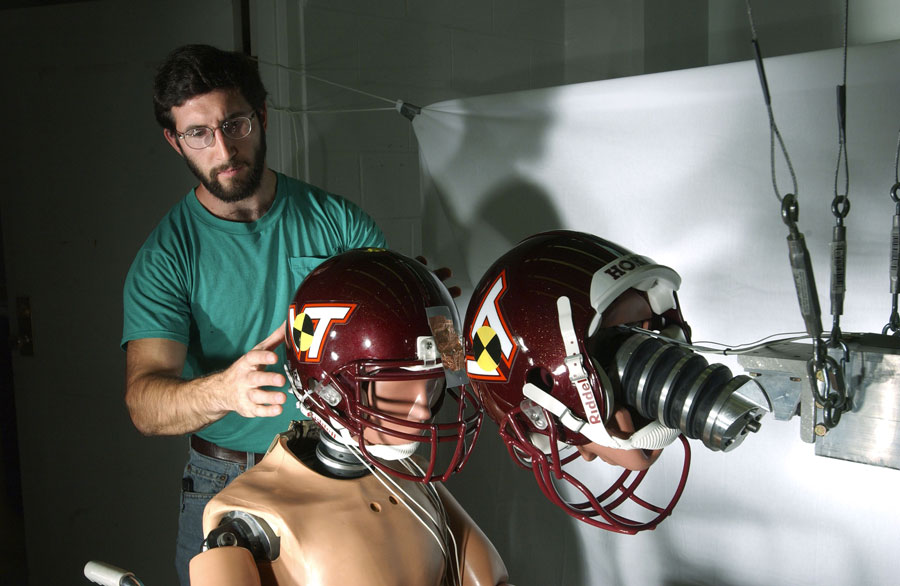Virginia Tech, Wake Forest Biomedical team obtains $4.9 million for trauma research

A group of nine international car manufacturers and suppliers is awarding $4.9 million to the Virginia Tech - Wake Forest University School of Biomedical Engineering and Science's Center for Injury Biomechanics, known internationally for its research on trauma and how it affects the human body.
The group, the Global Human Body Models Consortium, is funding the Center for Injury Biomechanics to conduct a study to produce a better understanding of what happens to individuals subjected to body trauma. “Initially, four sizes of individuals will be modeled to cover the maximum range of normal sizes in the world,” said Joel Stitzel, associate professor of biomedical engineering at Wake Forest. “These models will match the industry standard dummies in use today.”
The consortium will then develop scalable models from the unified computer model developed by the Center for Injury Biomechanics. The scalable models will represent other body shapes and sizes, as well as the differences for children and the elderly. The center will be centrally involved in this effort, along with numerous members of the School of Biomedical Engineering and Sciences.
Better crash safety technology is the ultimate goal of the participants in the Global Human Body Models Consortium. With the consortium, the automotive industry is consolidating its efforts into one international activity that advances crash safety technology. The computer models, which represent human beings in extremely intricate detail, could help investigators determine and better understand injuries that are likely to result from a vehicle crash.
The Center for Injury Biomechanics will act as the integration center for the study, with Stitzel serving as the lead investigator, in collaboration with the Hongik University in Korea. The grant also calls for it to act as the center of expertise for the abdomen portion of the computer model. Warren Hardy, associate professor of mechanical engineering in Virginia Tech’s College of Engineering, in collaboration with the French National Institute for Transportation and Safety Research, will lead this effort.
“Material properties, tolerance of tissues and systems, and the local structural responses during impact will be measured throughout the course of this project,” Hardy said, “in order to develop an improved finite element tool for the evaluation of local abdominal injury.” The Center for Injury Biomechanics is conducting the majority of the empirical work, and the French National Institute for Transportation and Safety Research is performing most of the numerical investigations for the study of the abdomen’s response to trauma.
The Center for Injury Biomechanics has over 40 researchers working on projects with applications in automobile safety, sports biomechanics, military restraints, and consumer products. With over 15,000-square-feet of research space, the center is equipped to perform everything from large-scale sled crash tests to the smallest cellular biomechanics study.
The center’s research projects are supported through research awards from the National Institutes of Health, Center for Disease Control, National Science Foundation, Department of Transportation, and the Department of Defense, as well as a range of industrial sponsors. Since its inception in 2003, the center has been awarded over $25 million in research funding. “We are at a critical time where our research and technologies can be effectively applied to save lives and reduce injuries,” said Stefan Duma, Virginia Tech professor of mechanical, and director of the Center for Injury Biomechanics.



.jpg.transform/m-medium/image.jpg)
